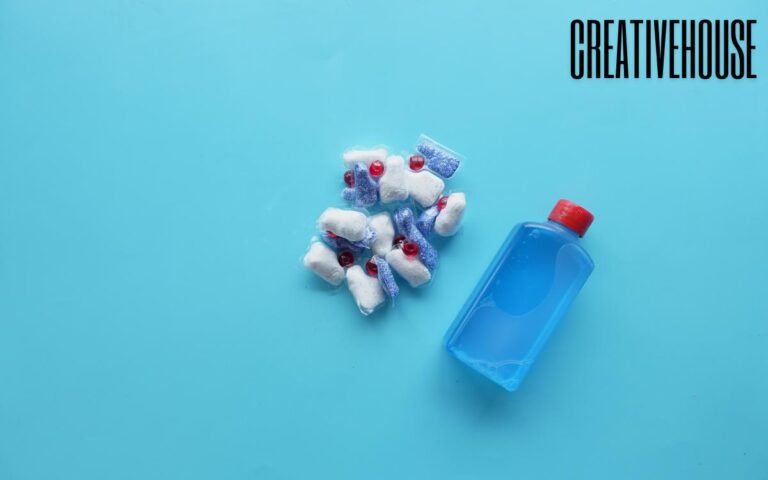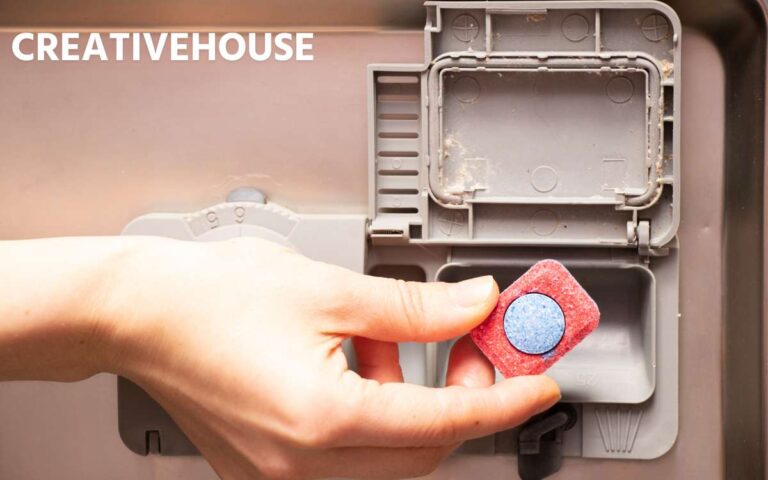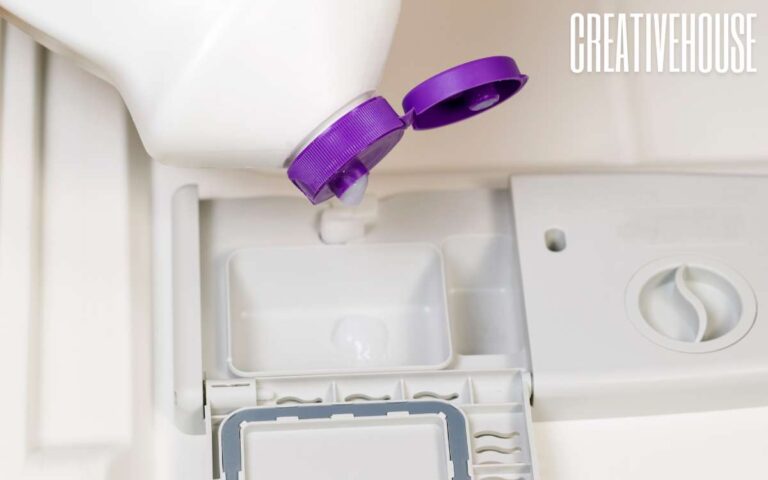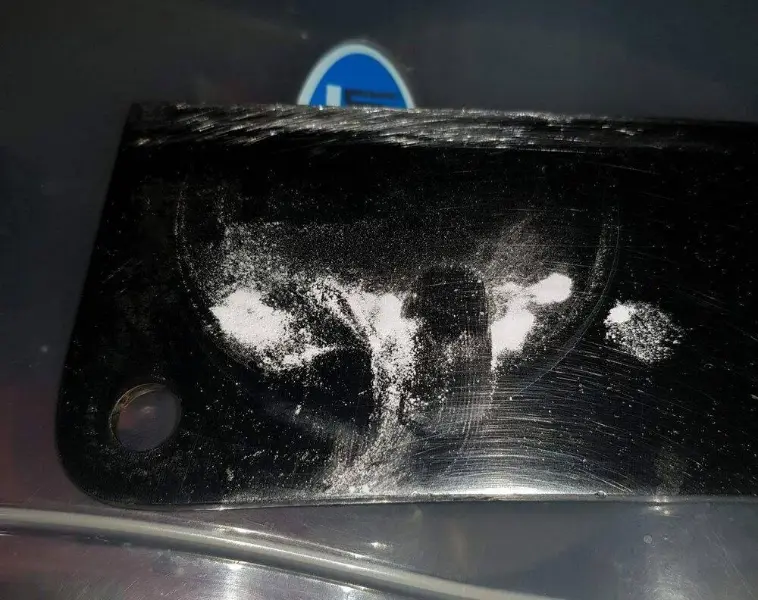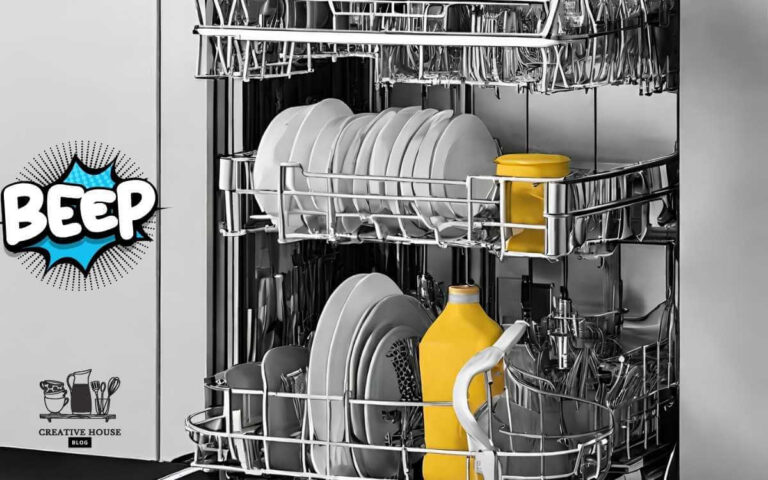Dishwasher detergent efficiently removes stains and food residue from dishes. Though, using them for household duties over an extended period of time may provide serious health risks.
Usually, dishwasher detergent is made of a mixture of chemicals that breaks down the food particles. This also keeps them from redistributing throughout the washing cycle onto clean plates.
But, you might wonder: “Is dishwasher detergent toxic?” It is a common question since it affects the environment and human health.

Is Dishwasher Detergent Toxic?
Chemical composition is the reason dishwashing detergents are hazardous. Food particles, stains, and grease are all broken down by this mixture.
Consider the following factors of dishwashing detergent toxicity:
Chemical Ingredients:
Chemicals are present in the majority of dishwashing detergents. Among these, sodium silicate, sodium carbonate, and sodium per-carbonate are the most regularly used.
These compounds have the potential to irritate the respiratory system, eyes, and skin. Accidental ingestion of these substances may cause gastrointestinal distress.
Bleach Content:
Dishwasher detergents may include oxygen bleach (percarbonate bleach) as well as chlorine bleach.
When used with several other cleaning products, chlorine bleach can release harmful fumes. Furthermore, they may release harmful gasses when exposed to high temperatures.
Respiratory discomfort may result from breathing in these vapors.
Nature:
The pH of dishwasher detergents is generally high. As a result, the detergent becomes alkaline or acidic.
Alkaline detergents have the potential to irritate eyes and skin. Additionally, some metals might corrode when using acidic detergents.
Fragrances and Rinse Boosters:
Rinse boosters and fragrances are added to certain dishwashing detergents to improve cleaning. Volatile organic compounds (VOCs) might be present in these additions.
These volatile compounds may be a factor in the indoor air pollution. It eventually might lead to allergic responses and respiratory discomfort in those who are sensitive.
What are Some Eco-friendly and Alternative Options for Dishwashing Detergent?
There are several kinds of eco-friendly and substitute dishwasher detergent choices that limit exposure and reduce any environmental effect.
Here are some alternatives to think about:
1. Plant Based Detergents:
- Check for dishwashing detergents that contain biodegradable or the plant-based materials.
- Natural surfactants and enzymes obtained from plants are frequently used in these goods.
- For instance, they employ coconut oil or citrus extracts as biodegradable ingredients to efficiently break down food particles.
2. Eco-friendly Brands:
- Plenty of dishwasher detergent manufacturers focus on creating eco-friendly cleaning solutions.
- These companies utilize less hazardous materials and place a high priority on sustainability.
- For example, the dishwashing detergent is packaged in a biodegradable manner and contains non-toxic surfactants.
3. DIY Dishwasher Detergents:
- You can prepare your own dishwashing detergent with inexpensive, environmentally safe components.
- Homemade dishwashing detergents recipe is very easy to make. It can be made with baking soda, citric acid, and borax.
- You can alter the components in countless other recipes that you will find online.
4. Powdered Detergents:
- Dishwasher detergent in powder form often contains fewer ingredients.
- They’re a more environmentally responsible choice because they contain fewer preservatives than their liquid equivalents.
- Go for powders with natural components and free of phosphates.
5. Certifications:
- Check out third-party certifications like the Eco-Logo, Green Seal, or Safer Choice label from the EPA.
- These certifications indicate that the product has undergone independent testing.
- Strict safety and environmental requirements will be met by these detergents.
6. Avoid Toxic Compounds:
- Bear in mind that certain compounds can be toxic to aquatic life and ecosystems.
- Examples of such ingredients are phosphates, chlorine bleach, artificial scents, and colors.
Tips on Using and Managing Dishwasher Detergents Safely
The following advice can help you handle and use dishwasher detergents safely:
- Read and Follow Instructions:
- Always read the manufacturer’s instructions and follow it at first.
- Verify the dosage guidelines again by re-checking the detergent’s box.
- Reducing waste and the possibility of residue accumulation on dishes is ensured by using the recommended amount of detergent.
- Store Detergents Safely:
- Safely store detergents by keeping them out of the reach of kids.
- Make sure they are always kept in a safe place, like a locked or high cabinet.
- Don’t forget to ensure the container is firmly closed to avoid unintentional spillage.
- Wear Protective Gear:
- To minimize irritation and chemical burns, put on protective gloves when handling dishwashing detergents.
- If there is any contact with the skin or eyes, thoroughly wash the area with water and get medical help.
- Prevent Ingestion:
- Dishwasher detergents are not edible and should not be ingested.
- Dishwasher detergent should never be consumed and used in place of other household items.
- In order to avoid accidental consumption, store detergent packages securely.
- Keep Detergents Dry:
- Dishwasher detergents might clump and dissolve too soon if there is moisture present.
- This lessens detergents efficiency and might cause spillage.
- Containers for detergent should be kept dry and cold
- Don’t forget to keep it away from sources of moisture.
- Use Rinse Aid Appropriately:
- Check the rinse aid dispenser’s instructions and follow them to ensure its correct usage.
- In addition to decreasing water stains on dishes, this will enhance drying performance.
- To prevent excessive foaming, do not fill the rinse aid dispenser to the brim.
- Carefully Handle the Detergent Packets:
- Before using, handle the detergent packs carefully with dry hands.
- In the dishwasher dispenser, place the detergent pack straight in.
- Run Full Loads:
- Only operate the dishwasher when it is completely filled in order to optimize efficiency.
- This process will save water and energy usage also.
- This will lessen the need for dishwashing detergent.
- Store Detergents Apart:
- Dishwasher detergents should be kept separate from other cleaning supplies.
- In particular, keep detergents away from containers that hold ammonia or acids.
- Combining multiple cleaning products might result in dangerous chemical reactions.
- Properly Dispose the Empty Containers:
- Rinse the dishwashing detergent container well after emptying it.
- Consult your local waste management authority for information on appropriate disposal techniques.
Common Misunderstandings on the Toxicity of Dishwashing Detergent
Here are a few of these myths dispelled and the real dangers connected to dishwashing detergents made clear:
Misconception 1: All dishwasher detergents are highly toxic.
Reality: The truth is that not every detergent is toxic.
Numerous producers provide biodegradable and environmentally friendly products made using safer materials.
Misconception 2: More detergent means cleaner dishes.
Reality: Dishwasher detergent used in excess does not always make dishes cleaner.
Indeed, it can cause issues including inadequate dishwashing and residue accumulation.
Misconception 3: All natural dishwasher detergents are always safer.
Reality: In actuality, homemade dishwashing detergents could include potentially hazardous and useless components.
Misconception 4: Phosphate-free detergents are ineffective.
Reality: Phosphate is not present in many dishwashing detergents made nowadays.
To get good cleaning outcomes, they are made using substitute substances.
Is Dishwasher Detergent Toxic – FAQs
Is it okay to use ordinary dish soap in a dishwasher?
No, as it may result in excessive sudsing.
Do dishes get damaged by dishwasher detergent?
Dishes may get damaged if the wrong kind of detergent is used or if too much is used in the dishwasher.
Do detergents for dishwashers expire?
If left in damp conditions or over time, they can become less effective.
Is it possible to use dishwashing detergent in a dishwasher that uses hard water?
Yes.
How can I determine whether a detergent for my dishwasher is environmentally friendly?
Seek out dishwashing detergents that have earned certifications from other parties, such as Green Seal and EPA Safer Choice.


